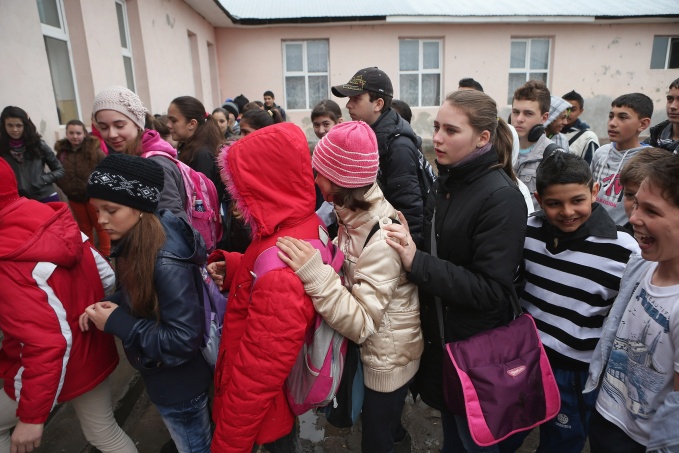Along with other member organizations of the Coalition for Gender Equality, E-Romnja, an association that advocates for Roma women’s rights, started campaigning for mandatory sexual education at all school levels across the country. The Ministry of Health expressed its support for the initiative, while the Ministry of Education, more reluctant at first, finally announced that it would publicly consult with teachers on the issue.
In the context of the coming local and national elections, we find ourselves in a challenging environment, with the very conservative—and influential—Orthodox Church campaigning against us. The church is pressuring politicians, mayors, social workers, parents (especially the religious ones), and even teenagers in schools. “Yes to abstinence, no to sexual education” is their motto. The methods they use are controversial. For instance, during a religious class in a public school, a priest showed horrendous videos on abortion, traumatizing the teenagers. The priest was not dismissed—as of today, he still teaches in public schools.
The other area where our efforts meet fierce resistance is in the realm of domestic violence. This issue is not specific to Roma women. It affects all women in Romania, and is the most widespread form of human rights violation, comprised of physical, verbal, psychological, sexual, and economic abuse.
In Romania, Law 217/2003 for “preventing and combating violence within the family” is the main legislative tool for addressing the issue of domestic violence. It is not taken seriously by police officers or local authorities, however, who do not allocate resources, officers, or funds for victims. Moreover, the lack of services and shelters for women in need makes no long-term support possible. Hence the interventions are limited—women and their children are not protected the way they should be.
For Roma women, the challenge is even bigger. They must contend with racist police officers who refuse to register their complaints, and legal authorities who see acts of domestic violence as “ethnic” or “cultural” when it comes to Roma women. Needless to say, this type of attitude discourages Roma women from appealing to authorities when their security is being threatened.
At E-Romnja, we are working with other feminist and Roma organizations to develop support groups for women and a toolkit for intervention in case of open conflict. Our challenge is to do this work while avoiding increasing stigma towards Roma in Romania. Public opinion tends to see domestic violence as inherent in “Roma culture,” a stereotype often complemented by a demonization of Roma men. Our goal is to look at the broader issue of women’s oppression and patriarchy in Romanian society, while keeping in mind that their ethnicity can add to the isolation and vulnerability of Roma women.
Our work on domestic violence highlights a fragile balance when it comes to Roma feminism. We are at the crossroads of experiences, nurtured by both our gender identity and our ethnic roots. We are often urged by male Roma activists to choose the fight against racism over the one against sexism, so as to not “fragment” the movement.
There are still many people, including Roma men, who do not understand the feminist agenda and believe it is about dominating and subordinating men. I know Roma men who believe that Roma women are irrational and unable to hold public positions. Should we, as feminists, follow the masculine model of leadership and forget about the gender component of our identity in order to be in power? I don’t think so.
It is up to the Roma movement to stop seeing things from one single perspective and to respect our voices if they want to count on our full participation.






